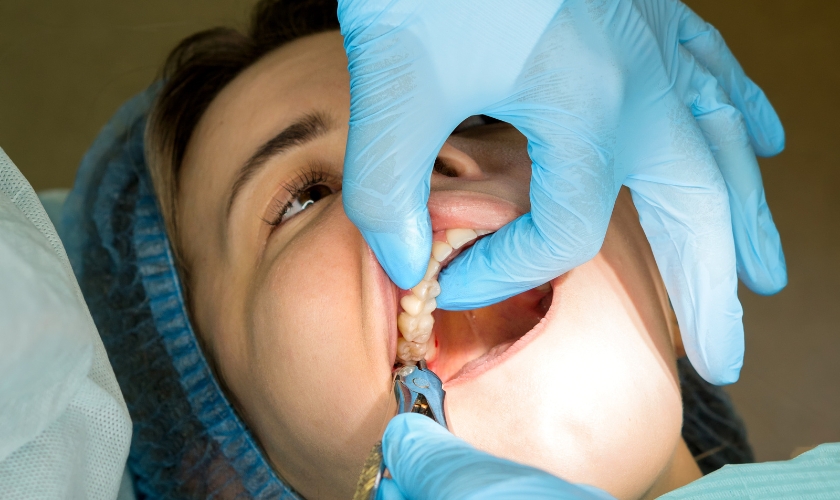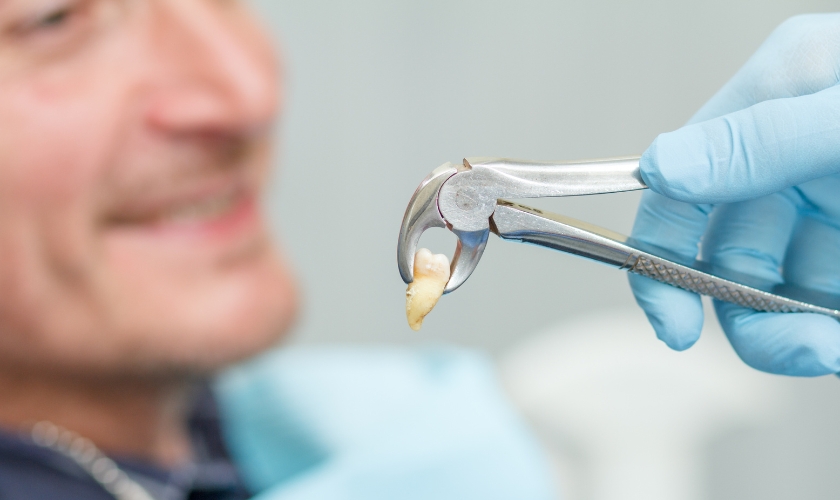
Wisdom teeth, also known as third molars, are the final set of molars located at the back of the mouth. They typically emerge in late adolescence or early adulthood and can often cause significant problems due to lack of space in the jaw. In Pocatello, many patients find themselves wondering whether it’s better to have all their wisdom teeth removed in a single procedure or to schedule multiple surgeries. This blog will explore the benefits and considerations of having all wisdom teeth extracted at once to help you make an informed decision.
Understanding Wisdom Teeth and the Problems They Cause
What Are Wisdom Teeth?
Wisdom teeth are the third set of molars that usually appear between the ages of 17 and 25. Historically, our ancestors needed these extra molars to help chew tough, raw food. However, with advancements in dental hygiene and diet, wisdom teeth have become less necessary. Modern humans have smaller jaws, often resulting in insufficient space for these additional molars to emerge properly.
Common Problems Associated with Wisdom Teeth:
- Impaction: When there isn’t enough space in the jaw, wisdom teeth may become trapped or partially erupt, leading to impaction. This can cause pain, swelling, and infection.
- Crowding: The eruption of wisdom teeth can push adjacent teeth out of alignment, leading to crowding and misalignment of the bite.
- Infection: Partially erupted wisdom teeth can create pockets where bacteria accumulate, leading to infections and gum disease.
- Cysts: Impacted wisdom teeth can sometimes lead to the formation of cysts or tumors, which can damage surrounding bone and teeth.
To prevent these issues and protect your oral health, many dentists recommend the removal of wisdom teeth before problems arise.
Wisdom Teeth Removal: All at Once or Multiple Surgeries?
Benefits of Removing All Wisdom Teeth at Once:
- Convenience: Scheduling one surgery to remove all four wisdom teeth can be more convenient than undergoing multiple procedures. This approach saves time and can reduce the number of trips to the dentist.
- Cost-Effectiveness: Removing all wisdom teeth in a single procedure can be more cost-effective. You’ll incur fewer overall surgical and anesthesia costs compared to having multiple surgeries.
- Reduced Anesthesia Sessions: A single procedure requires only one session of anesthesia, reducing the need for multiple administrations and potentially lowering associated risks.
- Comprehensive Treatment: Addressing all wisdom teeth in one go can help avoid future complications and ensure that all potential problems are dealt with simultaneously.
Considerations for Multiple Surgeries:
In some cases, your dentist may recommend removing wisdom teeth in stages rather than all at once. This approach might be considered in the following scenarios:
- Health Concerns: If you have underlying health conditions or if you’re particularly anxious about the procedure, your dentist might opt for a staged approach to minimize risk.
- Complex Cases: In cases where wisdom teeth are impacted or positioned in a way that makes extraction difficult, it might be safer to remove them in stages.
- Personal Preference: Some patients prefer a gradual approach due to concerns about pain or recovery time, opting to address one or two teeth at a time.
The Extraction Procedure
Whether you’re having all your wisdom teeth removed at once or in stages, here’s what you can typically expect during the procedure:
- Anesthesia: To ensure you’re comfortable and pain-free, anesthesia is administered. This may include local anesthesia to numb the area or sedation to help you relax.
- Incision: The dentist makes an incision in the gum line or around the teeth to access the wisdom teeth.
- Extraction: The wisdom teeth are carefully removed. In some cases, they may need to be sectioned into smaller pieces for easier removal.
- Stitches: The incision is closed with dissolvable stitches that will naturally dissolve over time.
- Recovery: After the procedure, you’ll be given post-operative care instructions, and a friend or relative will need to assist you at home.
Post-Operative Care and Recovery
Following the removal of wisdom teeth, proper aftercare is crucial to ensure a smooth recovery. Here are some tips:
- Rest: Take it easy for the first few days and avoid strenuous activities.
- Follow Instructions: Adhere to the dentist’s post-operative care instructions, including managing pain swelling, and cleaning the extraction site.
- Diet: Stick to soft foods and avoid hot, spicy, or crunchy foods that may irritate the extraction site.
- Oral Hygiene: Maintain good oral hygiene, but be gentle around the extraction area.
Deciding whether to have all your wisdom teeth removed at once or to schedule multiple surgeries depends on various factors, including your overall health, the complexity of the extraction, and personal preferences. In Pocatello, many patients find that removing all wisdom teeth in a single procedure is more convenient, cost-effective, and less disruptive to their daily lives. However, your dentist will assess your specific situation and recommend the best approach to ensure optimal outcomes and a smooth recovery.
If you’re considering wisdom teeth removal or have questions about the procedure, contact our dental office in Pocatello for a consultation. We’re here to provide personalized care and help you make the best decision for your oral health.

